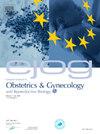应激诱发的发育可塑性与自发性早产:一项以正义为导向的生态进化研究综述
IF 1.7
Q3 OBSTETRICS & GYNECOLOGY
European Journal of Obstetrics and Gynecology and Reproductive Biology: X
Pub Date : 2025-06-08
DOI:10.1016/j.eurox.2025.100409
引用次数: 0
摘要
自然早产(妊娠37周)是新生儿发病和死亡的主要原因,全球在预防方面进展甚微。自然早产对因种族主义和社会经济劣势而被边缘化的社区的影响尤为严重。产妇压力是自然早产的一个公认的危险因素,在边缘化社区更为普遍。然而,作为临床干预的目标,产妇压力仍未得到充分利用。在这篇综述中,我们从生态、进化和发育(eco-evo-devo)生物学、黑人女权主义理论和生殖正义的角度来关注那些受母亲压力和早产负担最重的社区的边缘。在这样做的过程中,我们重新构建了减轻产妇压力在预防自发性早产中的重要性。通过应激诱导的发育可塑性,环境应激源可能通过进化保守的母胎胎盘信号通路缩短妊娠期。这一过程的两个特征与临床护理特别相关:首先,压力可能以剂量依赖的方式影响妊娠期长度;其次,它的影响可能是可逆的。减少产妇压力可能是一个非常可行的临床机会,切实减少自发性早产和增加生育公平。本文章由计算机程序翻译,如有差异,请以英文原文为准。
Stress-induced developmental plasticity and spontaneous preterm birth: A justice-oriented eco-evo-devo review
Spontaneous preterm birth (<37 weeks’ gestation) is a leading cause of neonatal morbidity and mortality, with little global progress in prevention. Spontaneous preterm birth disproportionately affects communities marginalized by racism and socio-economic disadvantage. Maternal stress is a well-established risk factor for spontaneous preterm birth and is more prevalent in marginalized communities. Yet, maternal stress remains underutilized as a target for clinical intervention. In this review, we draw from ecological, evolutionary, and developmental (eco-evo-devo) biology, Black feminist theory, and reproductive justice to center the margins of those communities most burdened by both maternal stress and preterm birth. In doing so, we re-frame the importance of maternal stress mitigation in spontaneous preterm prevention. Through the lens of stress-induced developmental plasticity, environmental stressors may shorten gestation through evolutionarily conserved maternal-fetal-placental signaling pathways. Two features of this process are particularly relevant to clinical care: first, stress may impact gestational length in a dose-dependent manner; second, its effects may be reversible. Reducing maternal stress may be a highly feasible clinical opportunity to tangibly reduce spontaneous preterm birth and increase birth equity.
求助全文
通过发布文献求助,成功后即可免费获取论文全文。
去求助
来源期刊

European Journal of Obstetrics and Gynecology and Reproductive Biology: X
Medicine-Obstetrics and Gynecology
CiteScore
2.20
自引率
0.00%
发文量
31
审稿时长
58 days
 求助内容:
求助内容: 应助结果提醒方式:
应助结果提醒方式:


